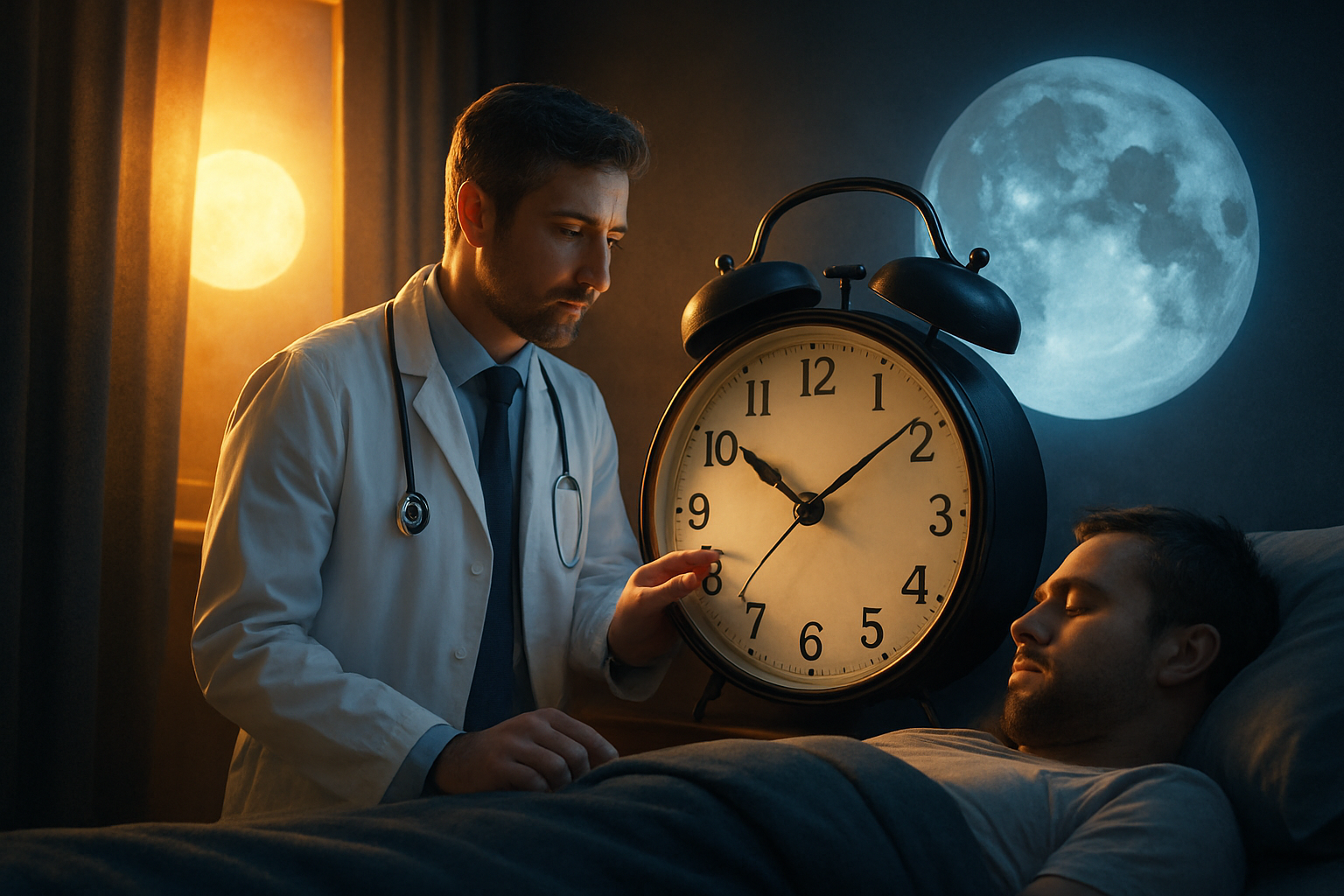Understanding the Causes of Excessive Sleepiness: An In-Depth Exploration
Excessive daytime sleepiness is a common yet often overlooked issue that affects millions of people worldwide. This persistent feeling of drowsiness during waking hours can significantly impact an individual's quality of life, productivity, and overall well-being. In this article, we'll delve into the various causes of excessive sleepiness, explore its impact on daily life, and discuss potential solutions to help those struggling with this condition.

What Exactly Is Excessive Daytime Sleepiness?
Excessive daytime sleepiness (EDS) refers to a chronic state of overwhelming daytime fatigue and sleep desire that persists even after seemingly adequate nighttime sleep. Unlike normal tiredness, EDS involves an inability to maintain wakefulness and alertness during major waking periods of the day, resulting in unintended lapses into drowsiness or sleep. This condition is often measured using standardized tools like the Epworth Sleepiness Scale, which helps quantify the likelihood of dozing off during various daily activities. EDS is not simply feeling tired after a late night; it’s a persistent condition that interferes with daily functioning despite efforts to get adequate rest.
What Are the Most Common Causes of Excessive Sleepiness?
Excessive daytime sleepiness stems from numerous potential causes, with sleep deprivation being the most straightforward. Modern lifestyles often prioritize productivity over proper rest, leading many adults to regularly get less than the recommended 7-9 hours of sleep. Beyond simple sleep deprivation, medical conditions play a significant role. These include:
-
Sleep disorders such as obstructive sleep apnea, narcolepsy, and restless leg syndrome
-
Psychological conditions including depression, anxiety, and chronic stress
-
Medical conditions like hypothyroidism, anemia, and chronic fatigue syndrome
-
Medication side effects from antihistamines, antidepressants, or sedatives
-
Lifestyle factors including irregular sleep schedules, poor sleep hygiene, and excessive alcohol or caffeine consumption
Each of these causes impacts sleep architecture differently, yet they all result in the common symptom of daytime drowsiness that persists despite seemingly adequate sleep duration.
How Does Excessive Sleepiness Impact a Person’s Daily Life?
The effects of excessive daytime sleepiness extend far beyond simply feeling tired. This condition creates ripples throughout every aspect of daily functioning. Professionally, individuals with EDS often experience decreased productivity, difficulty concentrating, memory problems, and slower reaction times. These cognitive impairments can lead to workplace errors, reduced job performance, and even safety hazards in certain occupations.
Socially and emotionally, the impact can be equally severe. Relationships may suffer as social withdrawal becomes common—people with EDS often cancel plans or avoid gatherings due to fatigue. Mood disturbances, including irritability, depression, and anxiety, frequently accompany chronic sleepiness. Additionally, the condition significantly increases the risk of accidents, with drowsy driving being comparable to drunk driving in terms of impairment level. Studies show that people with untreated EDS have a substantially higher risk of workplace accidents, motor vehicle crashes, and domestic injuries.
What Sleep Disorders Are Commonly Associated with Daytime Sleepiness?
Several distinct sleep disorders frequently manifest with excessive daytime sleepiness as a primary symptom. Obstructive sleep apnea (OSA) tops the list, affecting an estimated 22 million Americans. This condition involves repeated breathing interruptions during sleep due to airway collapse, preventing restorative sleep despite adequate time in bed. Narcolepsy, though less common, causes severe daytime sleepiness through dysfunction in the brain’s sleep-wake control mechanisms, often accompanied by sudden muscle weakness (cataplexy) and sleep paralysis.
Idiopathic hypersomnia presents as persistent sleepiness without an identifiable cause, with sufferers sleeping excessively yet never feeling refreshed. Restless legs syndrome and periodic limb movement disorder disrupt sleep through uncomfortable sensations and involuntary movements. Circadian rhythm disorders, where the body’s internal clock misaligns with environmental day-night cycles, can leave individuals fighting sleepiness during the day while struggling to sleep at night. Each of these conditions requires specific diagnostic approaches and targeted treatments.
How Is Excessive Daytime Sleepiness Diagnosed and Treated?
Diagnosing excessive daytime sleepiness typically begins with a comprehensive sleep history and physical examination. Healthcare providers often use standardized questionnaires like the Epworth Sleepiness Scale to assess severity. From there, more specialized testing may be required, including:
-
Polysomnography (overnight sleep study) to monitor brain waves, breathing patterns, heart rate, and movements during sleep
-
Multiple Sleep Latency Test (MSLT) to measure how quickly someone falls asleep during daytime naps
-
Actigraphy, which uses a wrist-worn device to track sleep patterns over extended periods
-
Blood tests to check for medical conditions like thyroid disorders or anemia
Treatment approaches vary widely depending on the underlying cause. For obstructive sleep apnea, continuous positive airway pressure (CPAP) devices remain the gold standard. Narcolepsy and idiopathic hypersomnia often require wake-promoting medications like modafinil or stimulants. Behavioral interventions, including strict sleep hygiene practices, cognitive behavioral therapy for insomnia, and lifestyle modifications, form the foundation of most treatment plans. For some patients, addressing underlying medical conditions or adjusting medications may resolve symptoms without specific sleep treatments.
Conclusion
Excessive daytime sleepiness represents much more than simply feeling tired—it’s a significant medical symptom that can severely impact quality of life. While many people normalize chronic fatigue in our busy society, persistent daytime drowsiness warrants medical attention. With proper diagnosis and treatment, most individuals with EDS can experience substantial improvement in alertness and overall well-being. Understanding the various causes and treatment options provides the first step toward reclaiming the energy and focus that excessive sleepiness often steals.
This article is for informational purposes only and should not be considered medical advice. Please consult a qualified healthcare professional for personalized guidance and treatment.




